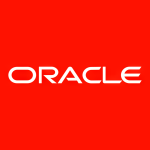Welcome to our dedicated page for Oracle news (Ticker: ORCL), a resource for investors and traders seeking the latest updates and insights on Oracle stock.
Oracle Corporation (ORCL) is a global software publisher and cloud technology company whose activities generate frequent, detailed news coverage. Oracle’s own releases emphasize its integrated suites of applications and secure, autonomous infrastructure in the Oracle Cloud, along with specialized platforms for healthcare, government, retail, hospitality, and utilities. This news page aggregates such company‑driven announcements and related market updates for investors and followers of ORCL stock.
Visitors can expect news on financial results and capital markets actions, such as Oracle’s Form 8‑K filings describing quarterly earnings press releases, cash dividend declarations, and the issuance of senior notes for general corporate purposes. Oracle also publishes updates on its cloud applications and AI capabilities, including Oracle Fusion Cloud Applications, Oracle AI Database services, and multicloud offerings like Oracle Database@Google Cloud, which connect Oracle databases with external analytics and AI platforms.
Another recurring theme in Oracle’s news is industry‑specific deployments. Recent announcements describe healthcare organizations adopting Oracle Fusion Cloud Applications and Oracle Health solutions, municipalities selecting Oracle Permitting and Licensing to modernize regulatory services, retailers using Oracle Retail Supply Chain Collaboration, and utilities implementing Oracle Utilities Customer Platform and the Opower engagement platform. Hospitality‑focused news includes enhancements to Oracle Payments for guest experiences and charitable giving at checkout.
By following this ORCL news feed, readers can monitor Oracle’s product launches, AI and cloud initiatives, sector‑focused customer wins, and governance‑related disclosures referenced in its SEC filings. Bookmark this page to review new Oracle press releases and regulatory updates as they are published and to understand how Oracle’s technology and corporate actions evolve over time.
Summary not available.
Alabama is implementing Oracle Student Financial Planning (SFP) to enhance FAFSA completion among high school students. In April 2022, the state saw a 21.9% increase in FAFSA submissions compared to the previous year, addressing an estimated $67.8 million in unclaimed Pell Grants. By making FAFSA completion a graduation requirement, Alabama aims to improve access to post-secondary education. Oracle SFP streamlines the financial aid process, empowering counselors to assist students effectively, thereby fostering a more diverse and skilled workforce.
Oracle has launched Oracle ME, a comprehensive platform designed to enhance employee experience and engagement within the Oracle Cloud HCM. This initiative aims to address the evolving expectations of the global workforce, with 85% of employees dissatisfied with current support. Oracle ME includes tools such as Oracle Touchpoints for listening to employee feedback, HCM Communicate for personalized communications, and Oracle Journeys for simplifying complex tasks. The platform ensures that organizations can adapt to employee needs, promoting retention and productivity.
Oracle Corporation (NYSE: ORCL) has extended its tender offer for Cerner Corporation (Nasdaq: CERN) until May 11, 2022. The all-cash offer remains at $95.00 per share for all outstanding shares. As of April 8, 2022, approximately 33,951,780 shares, or about 11.5% of Cerner's outstanding shares, have been validly tendered. The extension allows time for satisfying merger conditions, including regulatory approvals. All other terms of the tender offer remain unchanged, and further extensions may occur as needed.
The City of Tampa has successfully upgraded its operations by implementing Oracle Fusion Cloud ERP and HCM, enhancing IT security and reducing operational costs. This transition allowed staff to focus more on citizen services and eliminated various inefficiencies, such as the outdated invoice and approval processes. The implementation, led by Oracle Consulting using the Oracle Soar methodology, was completed on time and within budget. Tampa is set to benefit from ongoing updates and enhanced employee self-service capabilities.
Curator Hotel & Resort Collection has announced partnerships with Infor, Oracle, and Stayntouch to enhance member hotels' access to advanced cloud-based property management systems (PMS). These collaborations aim to improve service levels, operational efficiency, and personalized guest experiences, addressing the evolving demands in the hospitality sector post-pandemic. Curator's Vice President noted the importance of nimble PMS solutions for independent hotels, allowing for growth and innovation while remaining competitive in the market.
Oracle, in collaboration with the Association of International Certified Professional Accountants, has launched the "Agile Finance Transformation Certification Series." This program aims to equip finance leaders with essential digital finance skills, addressing a significant technology skills gap. Despite the demand, only 10% of finance leaders feel adequately prepared, and just 6% have robust training programs. The certification series offers practical guidance and real-world experiences from Oracle leaders, also providing 21.5 CPE credits for attendees.
Merlin Entertainments, a leading family entertainment operator, is enhancing guest experiences at LEGOLAND and SEA LIFE attractions through Oracle's MICROS Simphony POS and OPERA Property Management technology. These digital solutions enable mobile planning, check-ins, and food pre-orders, streamlining visits. With 140 attractions worldwide, Merlin aims to meet guests' growing demand for personalized experiences, enhancing operational efficiency. The partnership showcases Oracle's commitment to innovation in the hospitality sector.
NTT DOCOMO, Japan's largest mobile operator, has adopted Oracle Cloud Infrastructure (OCI) to enhance its customer information management system, ALADIN. This transition allows approximately 300 developers to create applications more efficiently and securely. As a result, DOCOMO can handle operations for over 83 million subscribers while reducing operational costs by 95% through automation and containerization. The move to OCI supports DOCOMO's expansion into smart life services and improves overall service quality.
The San Francisco Giants have integrated Oracle MICROS Simphony Cloud Point of Sale technology at Oracle Park, enhancing the fan experience and operational efficiency. This system allows for faster ordering and real-time inventory management, reducing food waste. Additionally, the Giants migrated their disaster recovery system from AWS to Oracle Cloud Infrastructure (OCI), safeguarding 200 terabytes of critical video data. Oracle's solutions aim to improve responsiveness to market demands and elevate the overall visitor experience at the ballpark.

